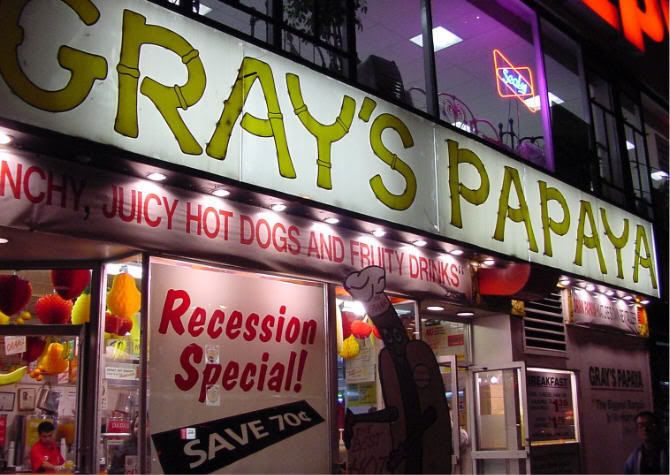 Listening to NPR this morning with all this economic talk made me want to figure out how a recession would actually affect me. Here is a compilation of what I found:
Listening to NPR this morning with all this economic talk made me want to figure out how a recession would actually affect me. Here is a compilation of what I found:Every week the media is promoting the upcoming economic recession harder than ever. Economists like telling everyone a scary deep economic recession is coming and it is going to be ugly. If you think the economy is going to escape a recession you will not get in the news. Bad news sells.
So let’s assume the media gets its way and we do in fact have a nasty economic recession. How will the economy affect YOU?
What IS a Recession?
In a recession, the economic growth rate falls dramatically --> Stock market declines --> "Flight to safety", where investors buy Treasury Bonds --> causes interest rates to fall.Economic growth falls when there is reduced spending by the consumer and then companies have to reduce their output. If this happens for long enough it will mean a reduction of jobs. When people become unemployed, they typically stop spending. The more jobs are lost, the less the consumers consume. It turns into a vicious cycle.
When a lot of people are unemployed, there can be fierce competition for jobs. When a lot of people want the same job, companies don't have to pay as much to get someone to fill the position. Summary: This probably isn’t the time to quit your job looking for a higher pay elsewhere.
To revive the economy, the Federal Reserve usually starts lowering interest rates to spur business lending and investment. The Federal Government may institute tax breaks to spur consumer spending. The tax break Bush mentioned in January is really just an advance on your refund, of up to $800 and the main beneficiaries are married couples with children, investors, high-income folks and small business.
Am I At Risk?
Unless you are a homeowner, the greatest risk is if you are in an industry that has layoffs, and you lose your job. If you aren't laid off, then you will probably be asked to work longer hours to compensate for the new employees who aren't hired. Less people shopping, fewer jobs in merchandising. Fewer loans available, less construction and banking jobs. People have no money to eat out, a lot less food service jobs.Industries like insurance and internet should be fine. Industries that rely heavily on advertising or consumer based products/marketing might have lay offs. If you rely on a lot of overtime pay, a recession might negate that need for extra hours. If you work on commission, fewer people may buy your stuff. If you work at a small business or as a contractor, your company might not want to/be able to cover your insurance bills anymore.
If you are a musician/artist – just because people are buying less of everything else doesn’t mean they won’t be buying your work or CD’s. Just like if the economy was in a “boom” or growth period. Does that mean suddenly people will be buying thousands of your CDs? No.
Your 401k - With retirement still 30 or 40 years away, you have plenty of time to recover from temporary losses, so there’s little sense in getting all worked up about them.
About the only good thing about a recession is that it will cure inflation. The balancing act the Federal Reserve must pursue is to slow economic growth enough to prevent inflation without triggering a recession. A recession will also help the environment a bit: less manufacturing, less travel, less SUV's sold etc.
Protect Yourself
What can you do to protect yourself in times of recession?Having a secure job is number one. We can't all have a secure job; however it is something to consider and do what you can to ensure you have one.
Have money in the bank. Having an emergency fund to cover necessary expenses is a must in times of economic problems.
Reduce your monthly payments - as in reduce your debt. Try to payoff anything that you can. Having less monthly obligations means that you could take a job that might pay less and it won't impact you as much.
Be energy efficient. Electricity bills will probably rise.
Save as much money as you can. Don't take on more debt, or spend a lot of money on something not completely necessary during a recession. Don't just have three months of money in the bank -- have three months of food and toiletries in the house as well. It is like an edible emergency fund. If you are struggling to pay your bills one month, then at least you won't have to worry about groceries. Eat from your stockpile and use the food money to pay your bills. It could make the difference in whether you have electricity or not.
If we are in a recession it will likely impact everyone in the United States. How severely it impacts you depends on what you do to prepare for it. Making sure your finances are in order and being proactive in protecting yourself will make a recession a lot easier to deal with.
-- SS
For more info see:
How Stuff Works: Recession
10 Ways a recession can help the environment






No comments:
Post a Comment